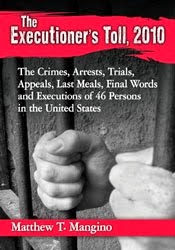For many Americans, the acquittal of Kyle Rittenhouse on all
charges was a vindication of an innocent, if not heroic, teenager
with good intentions. For others, it was a brutal disappointment, further
evidence that the courts give white men a pass for their actions, reported The New York Times.
But for legal scholars, it was not a surprise. Once Mr.
Rittenhouse claimed that he had acted in self-defense when he shot three men,
killing two, during unrest following the police shooting of a Black man in
Kenosha, Wis., the onus was on the prosecution to prove otherwise.
“When people look at this, and they’re feeling frustrated,
they’re not recognizing just how high the prosecutors’ burden is here,” said
Cecelia Klingele, a University of Wisconsin law professor. “It was a real uphill
battle to get out from under self-defense.”
The acquittal points to the wide berth the legal system
gives to defendants who say they acted out of fear, even if others around them
were also afraid.
Wisconsin’s rules for self-defense are well within the
national mainstream. If people reasonably believe they are at risk of death or
great bodily harm, they can use deadly force. Most states say that someone who
provokes violence or is acting illegally waives the right to self-defense, but
Wisconsin allows it if the person has “exhausted every other reasonable means
to escape from or otherwise avoid death or great bodily harm.”
The state does not have a full-fledged “stand
your ground” statute that exists in at least 30 states, but people who believe they are
threatened do not have a duty to retreat if they can.
Such rules can be combustible when
juxtaposed against the state’s open carry law, which allows for situations like
the one at issue in the trial, where numerous strangers were armed and had
taken it upon themselves to maintain order.
Self-defense laws typically do not require someone to have
good judgment and tend to consider only the moments leading up to the violence,
not whether the person willingly entered a turbulent situation or contributed
to the chaos.
“Do you look at the choice to go to a heated,
confrontational area with a weapon that would be scary to a lot of people?”
said Samuel Buell, a former federal prosecutor who teaches at Duke University
School of Law, speaking of Mr. Rittenhouse. “You can’t really say that he
doesn’t have a right to do that because of the status of gun laws.”
Similarly, even though the three men on trial for the
killing of Ahmaud Arbery in Georgia chased him through a suburban neighborhood,
they are claiming self-defense because, they say, Mr. Arbery tried to get
control of a shotgun one was carrying.
Gun laws have generally become more permissive — open carry
is now legal, to one degree or another, in almost every state. Gun purchases
have soared and the Supreme Court appears poised to gut
New York State’s handgun permit requirement in a Second Amendment
case.
“If we’re going to have a country in which guns are
pervasive and the law has little or nothing to say about where and when one may
carry a gun and display a gun,” Mr. Buell said, “then we are going to have a
situation where self-defense law can’t really handle it.”
The reasonable fear standard for self-defense has given rise
to concerns that it is affected by the same racial bias that permeates the justice system. A mountain
of social science research shows that Black people, men in particular, are more
likely to be seen as threatening.
“The message that this case sends is to shoot first, ask
questions later,” said Kami Chavis, director of the criminal justice program at
Wake Forest Law. She added, “If we change the race, the age, the victims, if we
change some of these dynamics we very well could have had a different result.”
During the unrest he was pursued by a man, Joseph Rosenbaum,
who Mr. Rittenhouse said he feared would wrest control of his gun. Mr.
Rittenhouse shot and killed him. That, according to evidence presented at the
trial, caused members of the crowd to perceive Mr. Rittenhouse as a dangerous
aggressor.
One man, Anthony Huber, used a skateboard as a weapon
against him. Mr. Rittenhouse shot and killed him before facing off with a third
man, Gaige Grosskreutz, who had pulled out a handgun. Mr. Rittenhouse wounded
him in the arm.
Even assuming that everyone involved had the best of
intentions, it would be difficult to tell aggressors from defenders. A police
officer testified that so many armed people were roving the area that when Mr.
Rittenhouse approached with his hands up, he made no connection to the
shootings that had occurred.
The jury was not asked to consider whether Mr. Rittenhouse
was in error for bringing a gun to a volatile situation. The only gun charge
against Mr. Rittenhouse — possession of a dangerous weapon by a person under 18
— was
dismissed at the 11th hour. The judge agreed with a defense argument that
the law made an exception for long guns, a common provision that allows
teenagers to hunt. The law was written at a time when military-style assault
rifles were not widely available.
Since the Parkland,
Fla., school shooting in 2018, in which the gunman was 19, Florida,
California and Vermont have raised the age to purchase a long gun to 21, and
Washington State did the same for semiautomatic rifles.
A Gallup poll last year showed that support for gun
regulation, which surged after the Parkland shooting, has ebbed during the
coronavirus pandemic and a spike in violent crime. Still, a healthy majority of
Americans support stricter gun laws.
“What happened in Kenosha isn’t some fluke,” said Nick
Suplina, senior vice president for Law & Policy at Everytown for Gun
Safety. “It’s the logical consequence of state and federal laws being written
by the N.R.A. and going unopposed for decades.”
For many who followed the case, especially on the political
left, the verdict raised uncomfortable questions about the scope of
self-defense laws. Mayor Satya Rhodes-Conway of Madison, Wis., called the
verdict “deeply disturbing” and expressed concern about the message it sent.
“Unfortunately, this will perpetuate distrust in the justice
system and further normalize gun violence,” Ms. Rhodes-Conway said in a
statement. “Allowing vigilantism to masquerade as self-defense is a terrible
precedent.”
Janine Geske, a former Wisconsin Supreme Court justice who
now teaches at Marquette University Law School, said the trial was an instance
in which many people’s opinions about what was morally acceptable clashed with
the jury’s interpretation of what the law allowed.
“I, too, share that view that had he not brought that gun
into Kenosha that day, and just come with his medic bag, we probably would not
have had any deaths,” Ms. Geske said.
Ms. Geske said she believed that the jurors could have
defensibly reached a guilty verdict. They could have, for example, decided that
Mr. Rittenhouse’s fear of death or great bodily harm was not reasonable in the
situation.
“It’s hard, because most of the victims at some point were
approaching Rittenhouse,” Ms. Geske said. “All those factors made it hard for
the jury to be satisfied that it wasn’t a reasonable belief.”
To read more CLICK HERE









